An impressive 89% of large companies globally are actively engaged in digital and AI transformation, but only a fraction achieve the revenue and savings they expected. Research shows companies that employ bolder, more rapid transformations see better results—as do those that masterfully reskill existing employees and deftly integrate new hires.
Of course, that’s all easier said than done.
“It’s not just that things are changing,” said Brad Watt, Chief Learning Officer at Colgate-Palmolive. “It’s the pace at which these things are changing that’s important. And the only way that you’re going to be able to build skill in the future is if you have this learning culture where people actually see the importance of building their full-self, growth mindset, sort of approach.”
Colgate-Palmolive employees assessed 5,000 skills and earned more than 3,500 badges in just five years. In that same time frame, more than 14,000 employees upskilled in data and analytics.
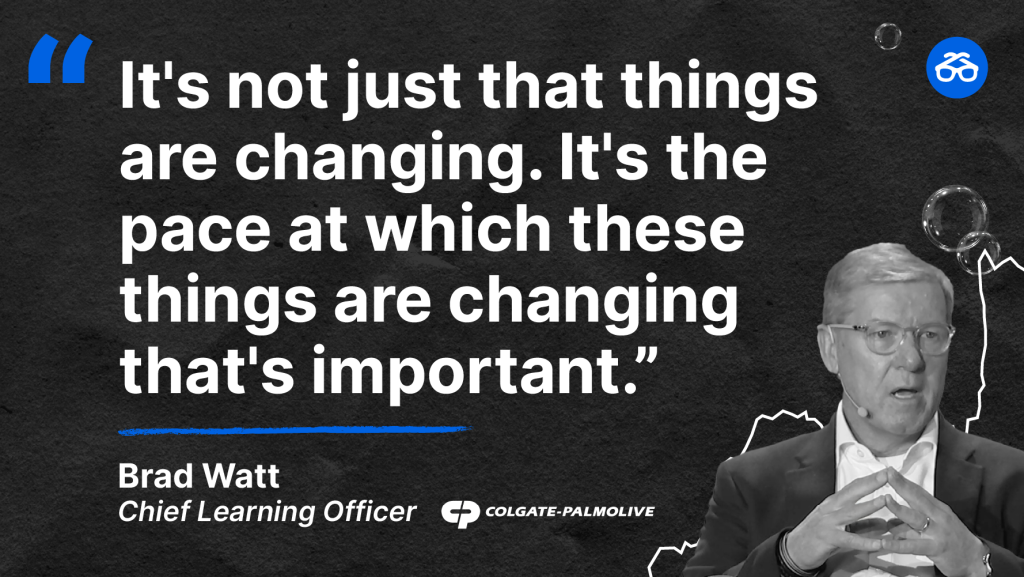
How has Colgate-Palmolive managed rapid change among 34,000 employees across 200 countries? By focusing on business goals, recognizing Degreed is much more than just a learning content search engine, and issuing lots and lots of badges.
Purpose-Driven L&D
Colgate-Palmolive began its L&D transformation with Degreed in 2018. But Watt soon realized that simply upgrading the L&D team’s tech stack wasn’t enough. The company needed to rethink how it used that technology to unlock its full potential. Initially, the company saw a big boost in monthly usage. But by 2020 adoption tapered off.
The team needed a fresh approach. Watt overhauled his learning strategy to make the best use of technologies like Degreed and keep up with the rapidly changing skills landscape of modern business.
The new strategy consisted of six pillars:
- A business focus: Narrow down which skills and solutions to invest in.
- People-centricity: Understand people, the skills they need to work, and the things they aspire to learn.
- Modern, responsive architecture: Use Degreed and other technology to run blended learning programs that incorporate a variety of tools and methods.
- Scale: Serve more than 34,000 employees in over 200 countries.
- Context: Deliver learning in the flow of work to maximize incremental capability improvements.
- Measurability: Track success across each pillar to understand company skill gaps, evaluate learning programs, and drive business results.
Spoiler alert: This strategy led to company-wide success. “The skill sets we have now around revenue growth management are meaningfully improved,” said CEO Noel Wallace.
Degreed: More Than a Fancy UI & Content Search Engine
To implement its new learning strategy, Watt’s team focused on four steps:
- Align learning outcomes to business goals (why people need to upskill).
- Build strategic skill application with org-level bootcamps. (what people need to learn).
- Personalize learning at scale (who needs to learn what).
- Leverage tech tools like Degreed Plans, Pathways, Skill Review, and Badging (how people learn).
Aligning Learning with the Business
The first step to building the learning strategy Colgate-Palmolive needed was aligning every learning opportunity with business goals. Watt’s team broke down the interests of the business and HR, then paired those interests with learning solutions the team could deploy over time.
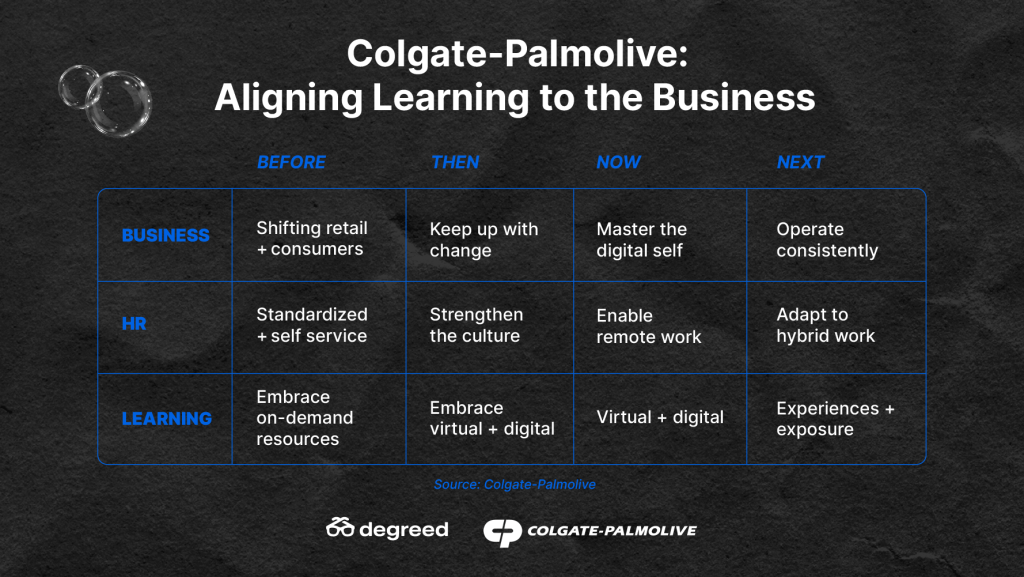
At first, the company needed to play catch-up against rapidly evolving technologies and markets, and HR needed standardization and self-service options. Then it would need to harness virtual and digital learning to master digital selling and enable remote work.
Building the Right Content
Once Colgate-Palmolive clarified why upskilling was necessary, it homed in on what its people needed to learn. Watt identified two strategic areas that would move the needle—digital commerce and personalization—along with six skills that would drive KPIs in those areas.
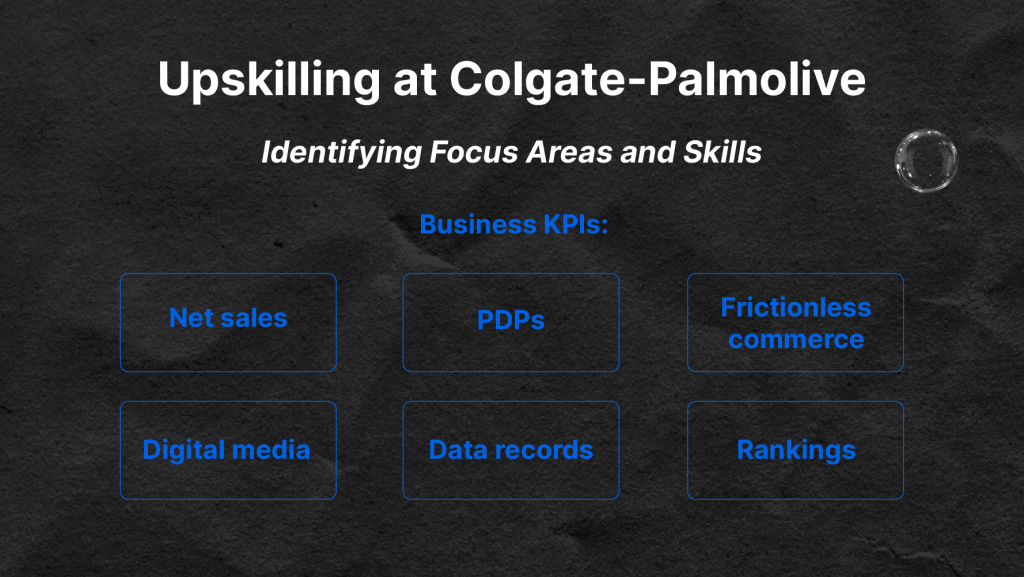
Personalizing Learning at Scale
After identifying the most important skills for Colgate-Palmolive, Watt and team asked who in the company needed those skills. His team began by building modules aimed at employees companywide. All workers needed some basic digital knowledge. They needed to embrace a new nomenclature, so they could talk about digital and AI topics as an organization. They needed ideas for using AI in their individual work. And they needed shared expectations, so what they created actually worked.
Next, the team focused on what leaders needed to know. Watt and team ran six bootcamps—one for each Colgate-Palmolive division. The goal? Help managers and executives understand digital and AI transformation and its relevancy to their specific unit. Then, help them gain hands-on experience, to ensure they could use their skills each day.
Degreed: Learning for the Business and Careers
Many organizations stop where Colgate-Palmolive had landed: with basic programs deployed company wide and deep training for executives in place. But Watt and team kept pushing—to ensure each and every Colgate-Palmolive employee could help drive digital change for the company. To refine how people learned, L&D turned to Degreed and found success—sometimes in surprising ways—using features like Plans, Pathways, and Skill Review.
A key success came with Badges, which Colgate-Palmolive launched in 2021. At first, employees used them as a form of recognition, and Watt described a typical progression: “I’ve done a badge, and I feel good, and I posted on LinkedIn.”
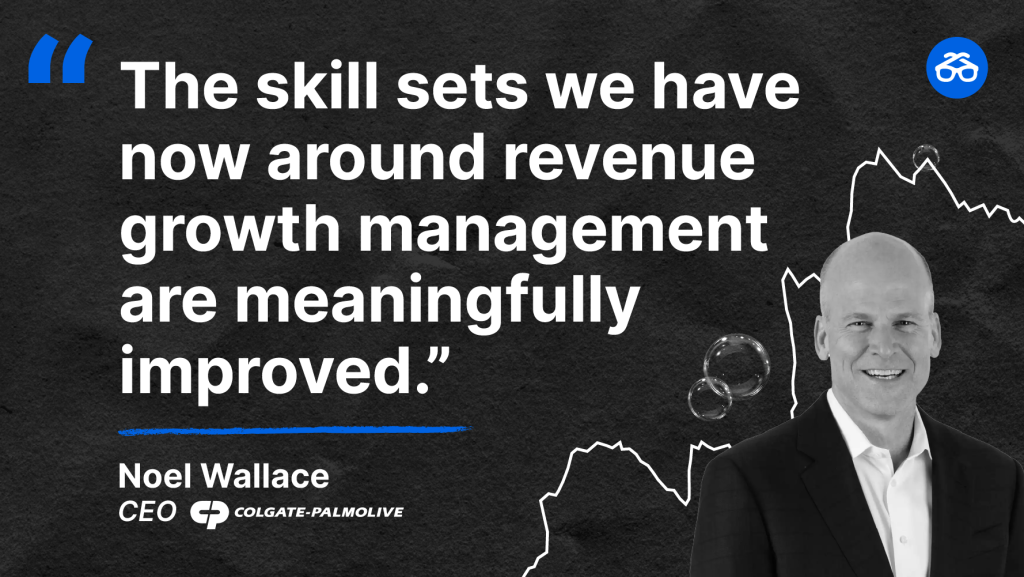
But badges also provided leaders with a very real visibility into individual employees’ capabilities, Watt said, adding they began using this inventory of skills for performance management and succession planning. “And that became a lot more motivational for individuals when they started to see that this is not only about showcasing it on LinkedIn, but rather it starts to have an impact in terms of where I want to go in my career.”
To earn badges, employees took skills assessments, which also allowed Watt and team to benchmark the company’s overall skill development—and to choose the next year’s goalposts. In 2022 L&D launched new badges that motivated employees to learn skills that would slingshot Colgate-Palmolive past competitors. And now, L&D introduces new badges each year—to continuously motivate employees to learn high-impact skills while advancing their careers.
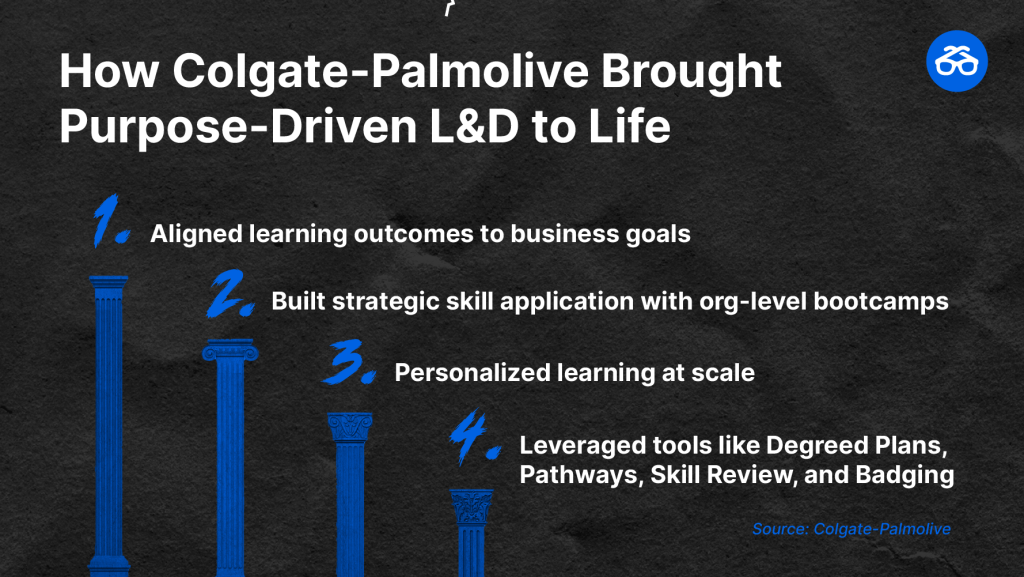
A New Way Forward
The Colgate-Palmolive L&D department looks vastly different than it did five years ago. It has learning partners who sit at the boardroom table and translate business needs into learning opportunities. A design and development team acts as an in-house content creation agency. A metrics team ensures the company is measuring learning impact. And a technology team keeps the learning ecosystem running smoothly.
Does Watt have advice for other L&D organizations?
“As you think about your tech stacks, what really is important is not only making sure that you’ve got the right interfaces that your employees can use, but that you’re collecting the right data, you’re organizing that data so that you can gain insight from that data,” he said.
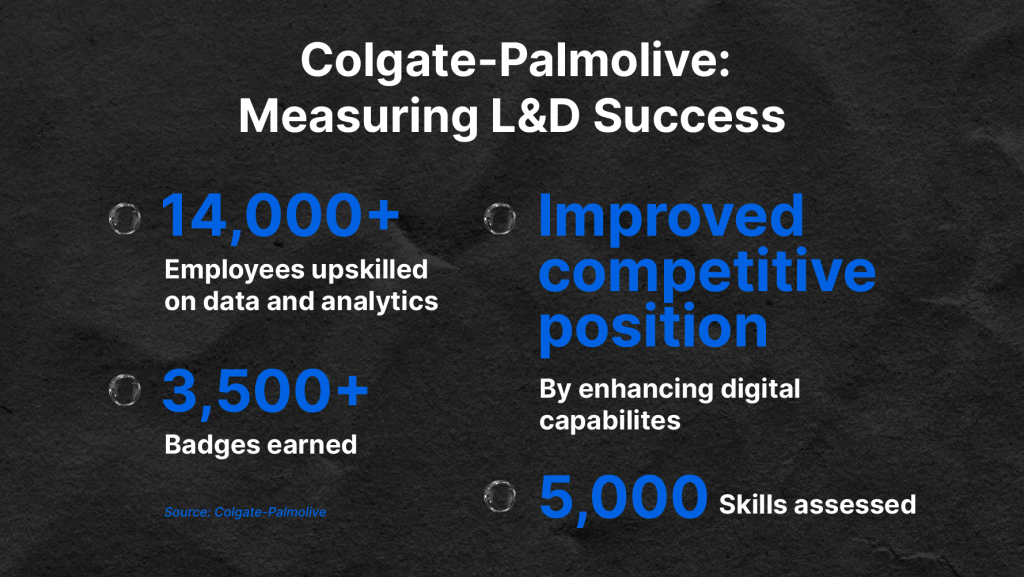
For Colgate-Palmolive, measuring success is two-pronged. Quantitative metrics are paired with qualitative feedback. Leaders can see that employees assessed 5,000 skills and earned more than 3,500 badges over the course of five years, and that more than 14,000 employees upskilled in data and analytics. But they can also see these skills are, “directly leading to growing e-commerce penetration and advancing our first-party data collection, digital media buying and advertising, and personalization, search, and social media strategies,” said Chief Digital Officer Brigitte King. Indeed, 60% of media spend was covered by analytics, and 14% of sales came from e-commerce—a nearly 10% increase.
And that drop in monthly Degreed users? The number of monthly Degreed users at Colgate-Palmolive surged to 86%—a statistic most companies only dream of.
Strategy + Degreed = Success
Early in its journey, Colgate-Palmolive saw Degreed as a Google-like search engine for learning content. But the true power of our solution comes when L&D aligns learning with business goals and leans into personalized learning.
“If you unlock the potential of skills in Degreed, that’s where it really, really helps,” Watt said. “If you do the right sort of skills assessment and you get people to update the skill profile, then the AI works magic. That way you create that continuous cycle of learning that is really in the flow of what people need to do.”
Find out more.
Let’s talk about your strategy. Contact us today to request a Degreed demo.

